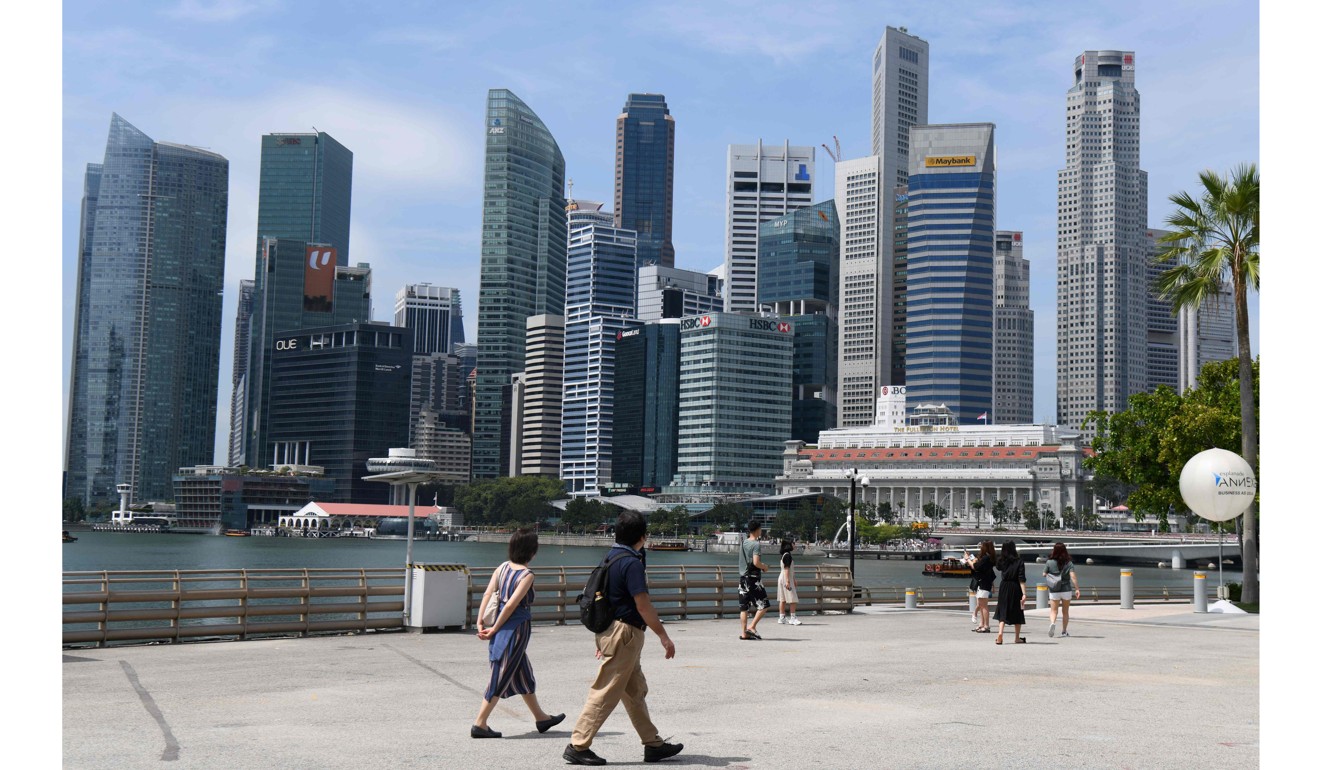
Singapore unveils US$4.6 billion economic boost in budget to battle coronavirus outbreak
- The funds will go towards health care and helping businesses and households, with the country set to post its biggest budget deficit since 1997
- The mix of sweeteners and financial support suggests a general election is on the cards for 2020 despite the gloom caused by the virus, says one analyst
The measures comprise a S$800 million health care package, S$4 billion for businesses and workers, and another S$1.6 billion going toward households to tide them over. The deficit will be 2.1 per cent of GDP in the coming financial year, up from 0.3 per cent in the current financial year.
“The outbreak will certainly impact our economy … Our first concern is to protect you and your families.”

Until the virus outbreak escalated last month, all eyes had been on whether the 2020 budget would be filled with relief measures since a general election is expected to take place this year, though Singapore has until April 2021 to go to the polls.
Analysts on Tuesday said while the budget largely focused on combating the economic fallout from the virus, it was full of sweeteners, with DBS Bank senior economist Irvin Seah calling it “an extraordinary budget in an exceptionally challenging period”.
“Given the magnitude of the whole budget plan and how comprehensive and deep it is, this suggests that the election is right there in the calendar despite this overhanging shadow of the coronavirus outbreak,” he said.
Heng announced a jobs support scheme to help companies retain workers that will see the government offset 8 per cent of wages up to a monthly cap of S$3,600 per worker, for a three-month period. All taxpaying companies will get a 25 per cent rebate on their taxes for this year, capped at S$15,000 per company.
Coronavirus: Singapore tightens rules for residents returning from China
Sectors directly affected by the virus outbreak – such as tourism, aviation and retail – will also receive targeted help. Changi Airport, for example, will get a 15 per cent property tax rebate.
About S$1.6 billion earmarked specifically for households will result in all Singaporeans above the age of 21 getting a cash payment of S$100 to S$300 depending on their income, while lower-income Singaporeans will get additional help with public transport and groceries. Community groups will also receive funding.
These financial measures are more extensive than the S$230 million relief package in the wake of the Severe Acute Respiratory Syndrome (Sars) in 2003, when Singapore’s economy was not as dependent on China.
Coronavirus: Hong Kong pledges US$25 billion in cash handouts
The Hong Kong government is expected to announce its annual budget on February 26.
GST DELAY, LARGER DEFICIT
Heng also announced he would delay the planned goods and services tax (GST) hike given the state of the economy, but warned it could not be postponed indefinitely because of fiscal needs.
The GST increase from 7 per cent to 9 per cent was supposed to happen between next year and 2025, and this year’s budget also includes a S$6 billion package to help Singaporeans face the impending rise.
“This will help most Singapore households cover at least five years of additional GST expense,” Heng said.

Other highlights in the statement – billed as a “Unity Budget” with total expenditure of S$106 billion – include a S$8.3 billion initiative to turn Singapore into a global hub for tech firms and a S$5 billion fund to protect the island from rising sea levels caused by climate change.
There are also moves to strengthen financial support for the elderly, lower the proportion mid-level skilled foreign workers in certain industries to offer more opportunities for local workers, and make electric vehicles more attractive for users.
The country has “built up the capital – financial, human and social – to go the distance”, Heng said.
“The Singapore spirit is strong and growing. Together, we will advance, as one Singapore.”
Coronavirus: Covid-19 impact already worse than Sars: Singapore PM
While the measures mean Singapore’s projected S$10.95 billion deficit for the next financial year starting April 1 is larger than what economists had expected, DBS Bank’s Seah said the amount was “still prudent” as the government had accrued a surplus of at least S$17 billion during its term.
Singapore’s constitution requires the government to balance its books over its term in power – it cannot log a deficit by the time an election is due and whatever is left unspent will be locked up in reserves.
HL Bank senior treasury strategist Jeff Ng said he expected the government to still add S$4 billion to S$6 billion to the reserves before voters went to the polls.
The last time Singapore projected a similarly large deficit – of around S$8.9 billion – was in 2009, when it announced a raft of financial measures to deal with the global financial crisis. The deficit later came in at S$819 million.

Heng said the government would utilise its surplus and not draw on past reserves. In 2009, the government had withdrawn S$4.9 billion from its reserves.
The finance minister said the coronavirus outbreak was a stark reminder to be fiscally prudent so the country could “deal with surprises and unexpected scenarios”.
Coronavirus: first Hong Kong and Singapore, now ‘virus-free’ Indonesia hit by panic buying
The trade and industry ministry estimates annual growth will be between -0.5 to 1.5 per cent, down from 0.5 to 2.5 per cent previously.
OCBC economist Selena Ling said the budget was “very generous” and will “definitely be welcomed by businesses and households and workers”.
Added CIMB economist Song Seng Wun: “What is good for the economy will be good for the politicians when they are ready to call for a general election.”

